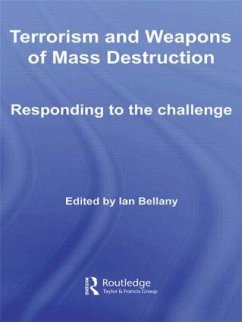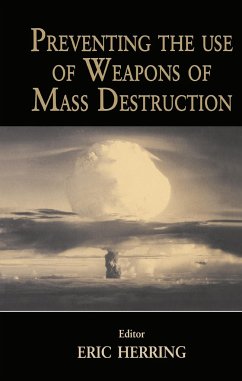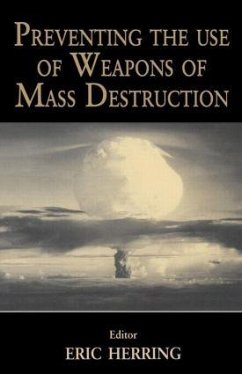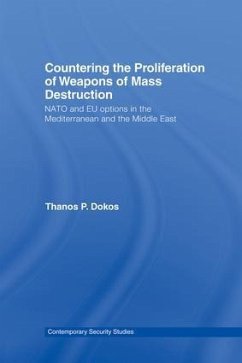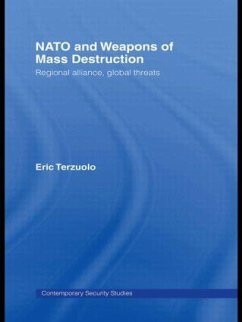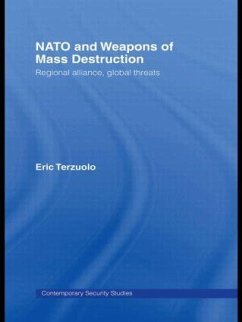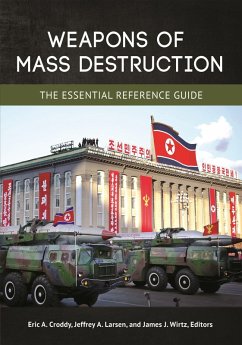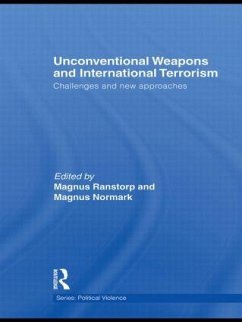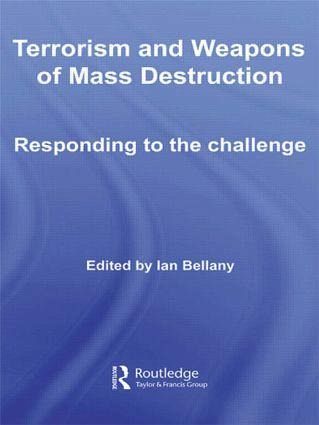
Terrorism and Weapons of Mass Destruction
Responding to the Challenge
Herausgeber: Bellany, Ian
Versandkostenfrei!
Versandfertig in 1-2 Wochen
59,99 €
inkl. MwSt.
Weitere Ausgaben:

PAYBACK Punkte
30 °P sammeln!
There is a widely held belief in the imminent probability of nuclear, chemical, or biological weapons of mass destruction being used by terrorists against civilian targets. This edited volume critically assesses the suggestion that one safeguard against this possibility would be to strengthen existing international prohibitions against state- level acquisition of such weapons. A glimpse of the possible potential of terrorist use of weapons of mass destruction has been seen through the actions of the Tokyo Aum group, and through the use of chlorine by insurgents in Iraq. However, the extent of ...
There is a widely held belief in the imminent probability of nuclear, chemical, or biological weapons of mass destruction being used by terrorists against civilian targets. This edited volume critically assesses the suggestion that one safeguard against this possibility would be to strengthen existing international prohibitions against state- level acquisition of such weapons. A glimpse of the possible potential of terrorist use of weapons of mass destruction has been seen through the actions of the Tokyo Aum group, and through the use of chlorine by insurgents in Iraq. However, the extent of the real threat posed is as yet unclear, and safeguarding against it in developing countries will not be easy. This book assembles specialists in each category of WMD in order to examine the potential of expanding the three 'classical' arms control treaties in order to combat the threat posed by smaller terrorist groups, and draws conclusions as to the strengths and weaknesses of this suggestion.





